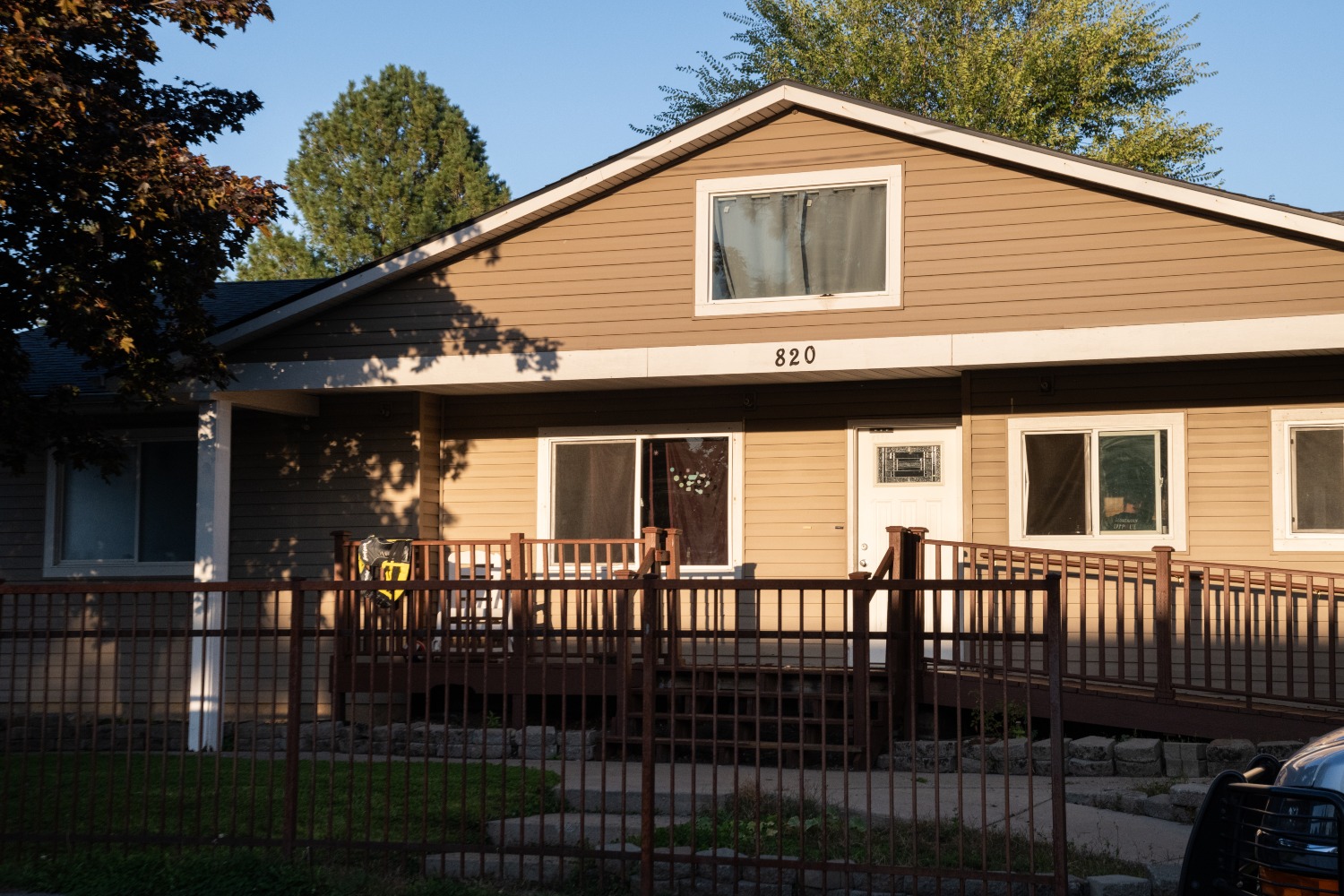Advocates express relief but push for greater oversight of facilities statewide
By Wilson Criscione / InvestigateWest
Cornerstone Cottage, the Idaho youth treatment home featured in several recent InvestigateWest articles detailing alleged child abuse and neglect that took place there, has closed.
Owner Jim Smidt notified the Idaho Department of Health and Welfare on Jan. 25 that Cornerstone was closing the Post Falls facility and discharging the five remaining residents by Jan. 31.
“Thank you for all of your guidance in helping our program grow,” Smidt wrote in the letter addressed to state regulators. “We have made a lot of progress over the years. The decision to close was not an easy one but necessary.”
Smidt did not respond to a message seeking comment for this article.
The youth treatment home opened in 2016 and accepted girls ages 11-17 who’d been through severe trauma. In October, InvestigateWest published a story uncovering instances of girls being raped, assaulted and physically restrained by an untrained staff there. A group of employees in 2021 alerted state regulators to the danger girls were facing in a lengthy complaint, and the state verified many of their concerns but only imposed a three-month ban on admissions. The whistleblowers were fired.
The state also declined to take disciplinary action against Cornerstone after learning that a staffer raped one of the 16-year-old residents in 2017. The girl, Alyssa Bowers, was placed at Cornerstone by Idaho’s foster care system after she’d been sexually abused by her father. She shared her experience with InvestigateWest in December.
Following InvestigateWest’s October article, advocates called for Cornerstone to be shut down, and lawmakers expressed a desire to boost monitoring of similar programs.
The Idaho Department of Health and Welfare investigated Cornerstone in November, but spokesperson AJ McWhorter did not disclose the nature of the investigation, only saying that it resulted in no “citations.” (A records request made by InvestigateWest is pending.) He said the state began investigating another complaint involving Cornerstone Cottage in January. But Cornerstone chose to close voluntarily, not because the state forced it.
Emily Carter, one of the former employees who reported problems at Cornerstone to the state in 2021, expressed relief that Cornerstone closed but still wishes the state had taken stronger action.
“I am happy that no child had to die at the facility in order for it to shut down. I am disappointed that the state has still neglected to remove their license and that they are shutting down by choice,” Carter said. “I truly hope wherever the kids go next feels safer to them.”

Emily Carter, left, and Kieria Krieger both worked at Cornerstone Cottage and, with other colleagues, sent an 84-page complaint to Idaho state regulators detailing horrors against children at the facility. (Leah Nash/InvestigateWest)
The Idaho Department of Health and Welfare has no record of suspending or revoking any license of a children’s residential care facility like Cornerstone.
The number of kids placed at Cornerstone, a 16-bed facility, has been low in recent months. Washington’s child welfare agency pulled out any remaining children it had placed there in late 2023 and declined to renew its contract with the facility for 2024. Jason Wettstein, spokesperson for the Washington Department of Children, Youth and Families, said the decision was part of a larger move toward the state declining to enter into contracts with out-of-state facilities.
Cornerstone had collected more than $7.5 million from Idaho and Washington foster care agencies combined since 2016. The agencies paid the facilities hundreds of dollars per day to house and treat each child.
In 2021, Idaho state regulators discovered that none of the staff at Cornerstone had properly completed training to use physical restraints that may be used to control a child who is a threat to themselves or others. The state also identified evidence of staff using “forbidden” restraints that involve staff holding children face down on the ground.
Idaho Department of Health and Welfare officials initially dismissed InvestigateWest’s reporting on Cornerstone internally. Emails obtained in a records request show that officials declined to follow up on any concerns raised in the article because they argued that all of the problems had been addressed.
“We reviewed the article that was published and identified that there were no new allegations in that article that we should be investigating. All of the allegations in that article were investigated in 2017 and 2021,” wrote Frede Teske, program manager for Health and Welfare’s therapeutic and residential licensing and certifications division, in October.
However, employees told InvestigateWest that the problems around the safety and care of children persisted, saying “nothing changed” after the state investigated Cornerstone in 2021. State and police records showed that one child said she was grabbed by the throat and pushed against a tree by a staffer. State regulators admonished Cornerstone for not giving a girl with a concussion access to timely medical care following a fight. And other girls repeatedly ran away, with one repeatedly doing so in part because of the conditions at Cornerstone, according to a police report. She became suicidal and said she was sexually assaulted while she was on the run.
Still, Health and Welfare maintained that there was nothing worth investigating when Gov. Brad Little’s office asked for a memo on the article, emails show.
“The department acknowledges the concerns brought forth by InvestigateWest, and the many challenges associated with caring for this vulnerable population of youth,” the memo said. “While Cornerstone’s compliance history and previous challenges do raise concern, the department is confident that our enforcement and oversight efforts have been successful, resulting in improved care as evidenced by regulatory compliance in recent years.”
When asked before the news of Cornerstone’s closure if Little plans to take any action in response to concerns about oversight of Idaho youth treatment homes, Little’s press secretary, Madison Hardy, offered a statement.
“The Governor takes all reports of concerns with state agency functions seriously, especially those impacting the health and safety of Idaho children,” Hardy said. “The situation with Cornerstone Cottage is being actively reviewed and monitored closely.”

Mara Deloney was first placed at Cornerstone in 2016. And though she preferred it to some other residential facilities, she also said Cornerstone caused her lasting damage, including a traumatic brain injury that to this day causes migraines. (Young Kwak/InvestigateWest)
Ruth York, outgoing executive director of the nonprofit Idaho Federation of Families for Children’s Mental Health, said she’d like to see more oversight of all Idaho youth treatment homes, such as a required level of evidence-based care.
“We want Idaho kids to stay in-state for the help they need, but only if we properly identify the right type of help in the right type of facility that consistently meets quality standards in order to keep their programs open,” York said. “This is not an area that can suffer poor oversight or lack of oversight without catastrophic damage to the lives of youth and their families.”
York added that she hopes the youth who remained at Cornerstone until its closure are matched with a facility that meets their needs.
“It is important that facilities who are not able to maintain adequate staff with adequate training in improving the lives of youth, versus adding to their wounds and challenging behaviors, do not remain open,” York said.
FEATURED IMAGE: Cornerstone Cottage opened in 2016 in Post Falls, Idaho, a booming bedroom community 25 miles east of Spokane. (Erick Doxey/InvestigateWest)
InvestigateWest (invw.org) is an independent news nonprofit dedicated to investigative journalism in the Pacific Northwest. Reach reporter Wilson Criscione at wilson@invw.org. This report was supported in part by a grant from the Fund for Investigative Journalism.



